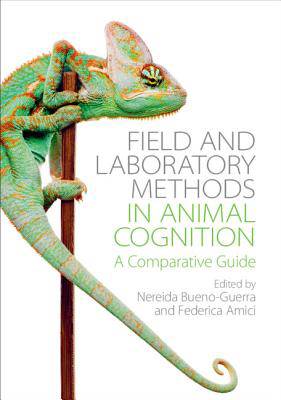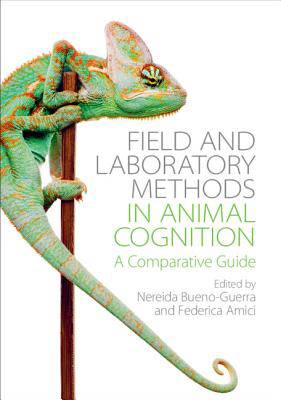
- Afhalen na 1 uur in een winkel met voorraad
- Gratis thuislevering in België vanaf € 30
- Ruim aanbod met 7 miljoen producten
- Afhalen na 1 uur in een winkel met voorraad
- Gratis thuislevering in België vanaf € 30
- Ruim aanbod met 7 miljoen producten
Zoeken
Field and Laboratory Methods in Animal Cognition
A Comparative Guide
Paperback | Engels
€ 98,45
+ 196 punten
Omschrijving
Would you ask a honeybee to point at a screen and recognise a facial expression? Or ask an elephant to climb a tree? While humans and non-human species may inhabit the same world, it's likely that our perceptual worlds differ significantly. Emphasising Uexküll's concept of 'umwelt', this volume offers practical advice on how animal cognition can be successfully tested while avoiding anthropomorphic conclusions. The chapters describe the capabilities of a range of animals - from ants, to lizards to chimpanzees - revealing how to successfully investigate animal cognition across a variety of taxa. The book features contributions from leading cognition researchers, each offering a series of examples and practical tips drawn from their own experience. Together, the authors synthesise information on current field and laboratory methods, providing researchers and graduate students with methodological advice on how to formulate research questions, design experiments and adapt studies to different taxa.
Specificaties
Betrokkenen
- Uitgeverij:
Inhoud
- Aantal bladzijden:
- 456
- Taal:
- Engels
Eigenschappen
- Productcode (EAN):
- 9781108413947
- Verschijningsdatum:
- 27/09/2018
- Uitvoering:
- Paperback
- Formaat:
- Trade paperback (VS)
- Afmetingen:
- 245 mm x 176 mm
- Gewicht:
- 925 g

Alleen bij Standaard Boekhandel
+ 196 punten op je klantenkaart van Standaard Boekhandel
Beoordelingen
We publiceren alleen reviews die voldoen aan de voorwaarden voor reviews. Bekijk onze voorwaarden voor reviews.







